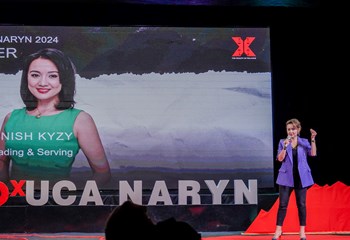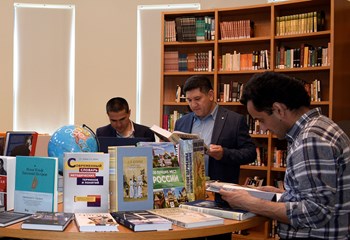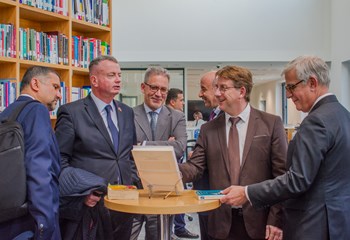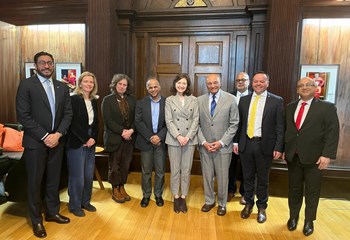
MSRI Participates at Dubai Expo on Climate Resilient Mountain Development
Global warming and climate change have created an urgent need to address issues of building more resilient communities, particularly in the mountainous regions of Central Asia.
Dr Roy Sidle, Director of the Mountain Societies Research Institute at the University of Central Asia, was as a panelist at the Climate and Biodiversity Theme Week organized by the Dubai Expo 2020. The session “Reaching for the Stars: Sustainable and Climate Resilient Mountain Development”, was arranged in collaboration with the Aga Khan Development Network, the Mountain Development Partnership of the Food and Agriculture Organization, and the Government of Italy.
The panel discussion invited experts from other agencies of the Aga Khan Development Network (AKDN), for a discussion on their joint efforts in attaining the uniform goal of improving the quality of life of people in mountain communities.
Combining the overarching fields of planning and academia, Bahar Dutt - a well-known environmental journalist and the moderator of the event, asked Dr Sidle about the spread of misinformation about climate change and the role of academia in informing citizens, “It is not only about fixing the problem but understanding the fundamentals of the issue. There are many generalities when it comes to climate change. We must dig down into the specifics of the community’s location. Often, we talk about global warming in mountain communities, however, if we look at temperature changes in the southwest of the Pamir mountains then it has declined in the last 20 years. Thus, research brings a much-needed perspective to the overall equation, and addresses multi-dimensional and multi-disciplinary issues.”
Panelists further developed the discussion on the concept of building resilient communities and providing basic necessities to avoid rural-urban migration. One of the panelists, Karim Khoja, CEO of Industrial Promotion Services, provided a historical perspective, “After the Central Asian states gained independence in 1991, infrastructure was almost non-existent or in very poor condition. In the GBAO region, less than 13% of the population had electricity for only 4 hours a day. With the establishment of the University of Central Asia by His Highness the Aga Khan there was renewed interest in the sustainability of mountain communities, which also attracted aid agency funding. Today, electricity is available 24/7 and the revitalization of the region is attracting investments, businesses, and encouraging youth to stay in GBAO rather than seek jobs elsewhere.”
Even if youth plan to stay in the region, natural hazards leave a significant impact on the livelihoods of mountain communities. Dr Sidle further stressed the importance of encouraging policymakers to do long-term planning using academic research, “Policymakers usually do not grasp the impact of low frequency high magnitude events, because they do not have a high probability of occurrence it is difficult to foresee the value of its long-term planning. Starting with school children, we need to start talking about basic concepts of climate change to promote awareness.”
Concluding the discussion, Kira Intrator, Lead of Habitat Planning & Innovation at the Aga Khan Agency for Habitat, talked about the overlapping objectives of AKDN institutions, “We work closely within our Network to bring together academic input, geographic information analysis and long-term policy changes. We co-educate the community as there is not one single solution.”
Watch the full discussion: https://virtualexpodubai.com/listen-watch/events/reaching-for-the-stars-sustainable-and-climate-resilient-mountain#video.

